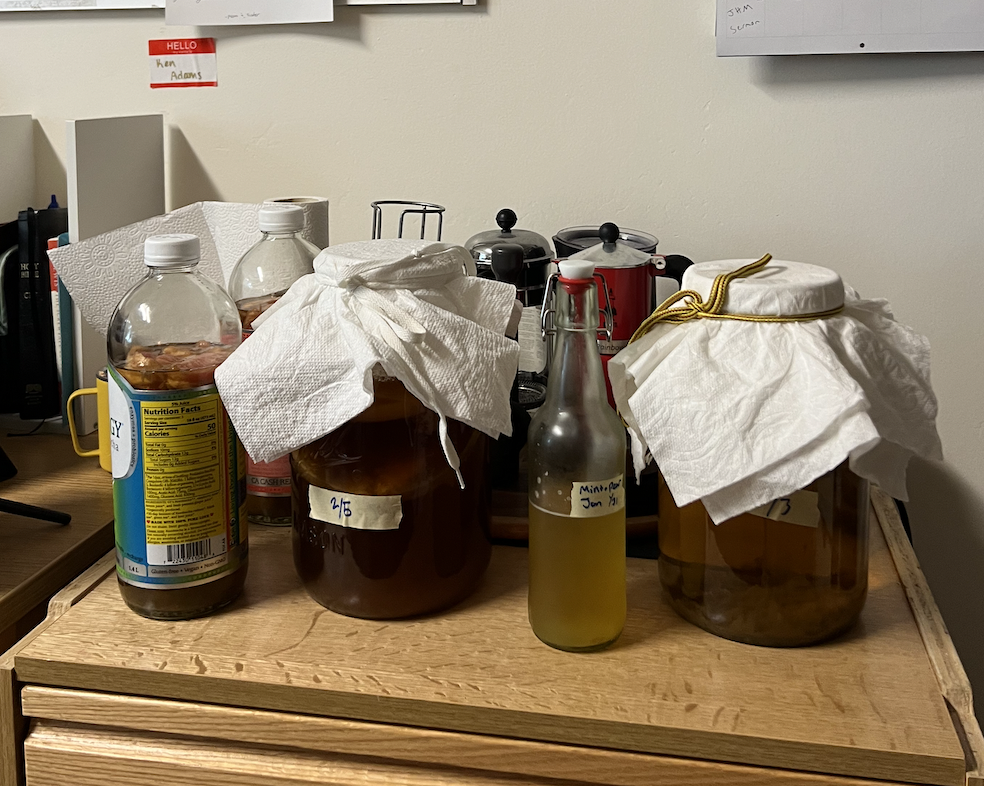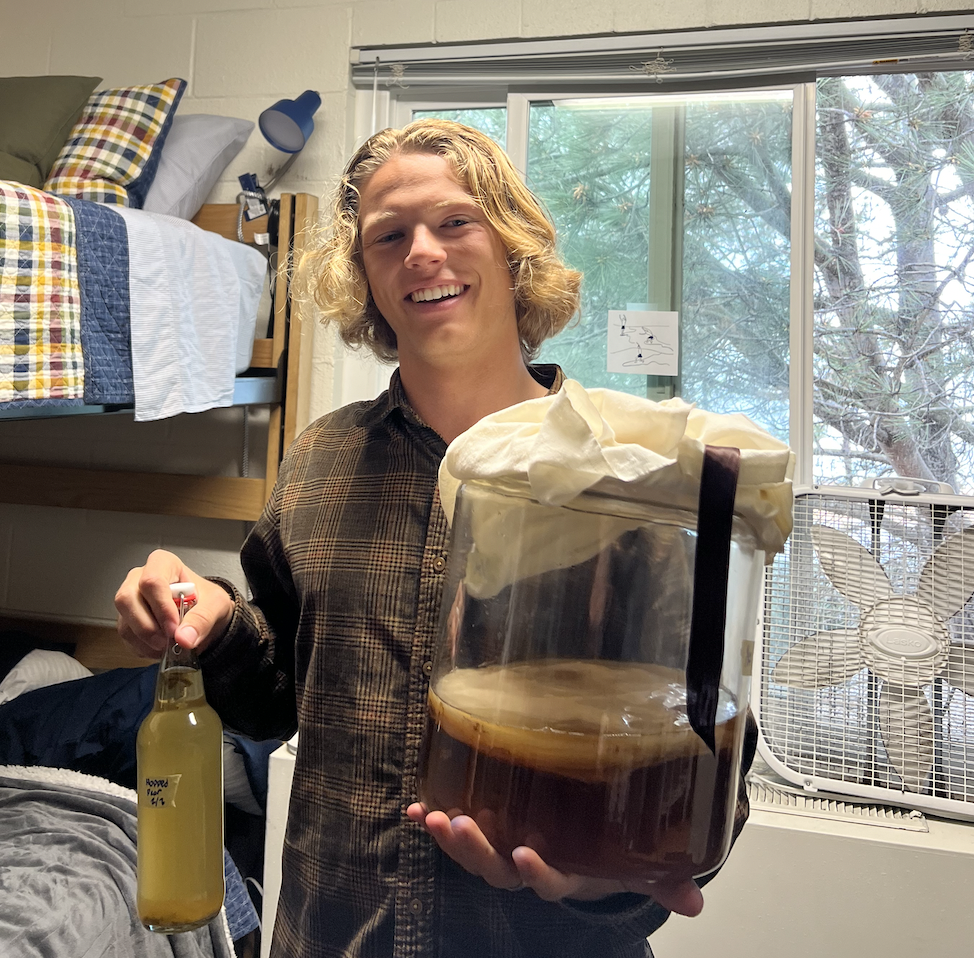Growing up in a homeopathic household, I was unphased by the ever-changing ideas and alternative medicine styles my mom would dive into. Whether it be her search to find a natural allergy medicine to aid my seasonal sniffles, to rubbing peppermint oil on my temples to cure my headache, I was incredibly appreciative of her constant efforts to provide our household with sustainable and holistic approaches to medicine.
I remember one day she brought home something new. This squishy white organism sat in a huge jar on our counter fermenting in some kind of liquid. I was a bit shocked at the look of what she called a “SCOBY.” Little did I know how much I would greatly benefit from what this “SCOBY” was producing. This “symbiotic culture of bacteria and yeast” would soon produce kombucha, a natural gut-healing drink.

A few weeks ago, my roommate brought into our room a SCOBY of her own, and I was immediately brought back to those memories of my mom. I had to know where she got it from, and who else was creating kombucha around campus.
My roommate Liberti Cornell, a second-year dietetics major, informed me that Sloane Young, a third-year environmental studies major, had given her part of her SCOBY to start her own kombucha-making process.
Young shared how she had received her SCOBY from her mom’s friend, and said, “It has spawned lots of children since then.” The SCOBY is technically not creating children, but it does go through a constant process of renewing itself layer by layer, and these individual layers can be given away to create new kombucha brews.
Young informed me how the environment here in San Diego is great for making kombucha because the SCOBY likes to be in 70 to 75 degrees. Our Point Loma weather is the perfect temperature for a happy and healthy SCOBY to grow and cultivate in.
Jack Trepus, a first-year biochem major, is currently cultivating kombucha in his dorm room in Nease. Trepus is passionate about sharing his kombucha journey. He has mastered the art of making kombucha and is also knowledgeable about the natural medicinal properties it holds.
“I started drinking Kombucha in eighth grade and I wasn’t really aware of the gut health side of it,” said Trepus. “I just thought it was interesting and weird and wanted to try making it, so I grew a SCOBY from a bottle of GT Dave’s kombucha about five years ago and I’ve had it since. It’s been feeding me, and I’ve been feeding it.”
According to Trepus, the process of making kombucha can be messy and difficult at times.

“Here it was really tough to kind of integrate into the dorm brewing, the RA’s and the RD’s were really skeptical about it,” said Trepus. “I’ve had moments where I’ve had to open my kombucha in the bathroom and it’s literally exploded all over the wall because it gets so fizzy.”
Trepus uses recycled bottles and jars to store his many containers of kombucha and to give some away to friends.
“Even though I’ve been in this dorm room where things are really difficult and I don’t have access to fruits and stuff like I usually do, I’ve done more experimenting than I ever have. I’ve crafted my kombucha so well that I don’t need soda,” said Trepus.
I can attest to this. Trepus’ kombucha was delicious. He immediately offered me some, and proudly poured his carefully crafted kombucha for me to try. He has shared his kombucha with many people here at PLNU, while also educating them on its healing properties.
Not only is kombucha a delicious drink, but one that heals your gut microbiome, decreasing bad bacteria and building up the good. A bottle of kombucha holds as much as 100 to 500 million good bacteria in it. This bacteria from kombucha, as well as other fermented food and drink, contains probiotics that not only help your gut health but promote your immune health as well.
“I think that gut health is really integral to our wellbeing and our emotions,” said Trepus. “It’s known that your gut microbiome is the exchange between what you eat and what you get from what you eat. And so if that’s messed up, you’re not gonna be getting what you need and then ultimately it’s gonna affect things like your mental health. It can cause depression, anxiety, all kinds of crazy things.”
He has been able to learn more about this extensive process here at PLNU. In his biochem classes, Trepus has been able to ask professors and peers about their knowledge regarding the kombucha fermentation process, and its healing benefits.
“As a biochem student, I’ve been thrilled to investigate what’s really going on,” said Trepus.
Trepus was able to share with me his incredible brew, and his knowledge on the health benefits that I was not fully aware of when my mom began making kombucha.
“I love to share what I wish I knew when I first started,” said Trepus.
Cornell, Young and Trepus are each navigating how to cultivate kombucha here at Loma, and sharing their brew and advice with others who are interested.
